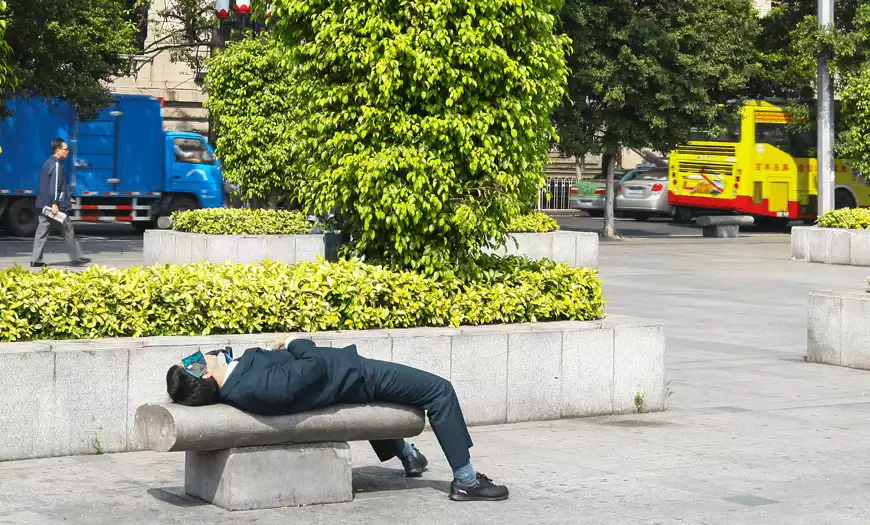Sometimes we don’t sleep well at night and we lack energy during the day, and sometimes we get tired in the afternoon. It’s only natural – the first half of the day is over, there’s still the second half to come, and we need to recharge in the middle of it. But is it really beneficial to take a short nap? How will it affect our performance and psychological well-being?
Save calories: sleep instead of sweets
If you start to feel tired in the afternoon at work, it is not laziness, but the natural needs of our body. After all, it is also related to our biorhythm: after about eight hours of waking up in the morning, the body asks for rest. Instead of reaching for something sweet or another cup of coffee, take nap. Research from the University of California shows that people who took an afternoon nap performed much better on exercise tests compared to those who didn’t take a short afternoon nap.
Benefits obtained in minutes
So, the next time you’re feeling low, try sacrificing a few minutes for a refreshing nap. The excuse that you don’t have time doesn’t hold up – really, just a moment is enough to restore memory, concentration and learning ability. This will increase your productivity and efficiency, so the investment is really worth it. Afternoon naps have also been known to some notable figures such as Napoleon, Albert Einstein and Winston Churchill. Nowadays, more and more companies are allowing their employees to take naps as they realise its undeniable benefits.
Short or long nap?
How long the nap should last depends on how much you need to relax. Of course, you also have to respect your own body and its biorhythm. In general, 10 to 20 minutes of afternoon sleep is recommended. This time is ideal for refreshing the mind and replenishing energy. Sleep doesn’t have time to get deep, so when you wake up, you’ll feel alert and can get right back to your work. Watch out for sleep that lasts 30 minutes. It can cause grogginess on waking, which you may need another half hour to overcome. If you’re preparing for an important test and need to cover a bunch of material, know that 60 minutes of sleep is great for boosting memory. However, just like a 30-minute nap, you may feel temporary tiredness afterwards.
A 90-minute nap, or one sleep cycle, will partially make up for the lack of sleep at night. Such rest provides the improvement in creativity, emotional and procedural memory that we need, for example, to learn to ride a bike. You should wake up at the end of your sleep cycle, which will make you feel refreshed and rested. Longer naps are not recommended – the consequence could be sleeplessness at night.
Ideal time for pads
It usually “breaks” us the most when we get back to the office from a good lunch. However, sleeping immediately after lunch could disrupt our digestion, so it’s worth waiting a bit. The ideal time to take a siesta is between two and four in the afternoon. By the end of the working day, you’ll still have finished all your tasks, and you’ll also be sufficiently tired before falling asleep in the evening. Be sure not to work later so as not to disrupt your sleep schedule. And what to do if you don’t have a chance for even a short nap? If possible, find a comfortable position, close your eyes and relax for at least a few minutes. Put on your favourite music or think of something pleasant. We hope we’ve convinced you that a regular afternoon nap is good for your health and performance. In just a few minutes, it can give you a boost of energy when your eyes start to close over work. Nevertheless, don’t underestimate the value of a good night’s sleep, which cannot be replaced by anything.
Check out other articles from the world of mattresses and healthy sleep! 🙂





